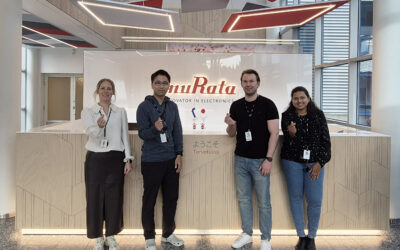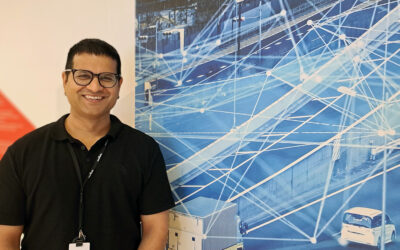“At Murata, I can utilize what I already know – and what I don’t know yet, I can learn!”
Jannatul, one of Murata’s Process Development Engineers, came to Finland six years ago to do her PhD in Aalto University. She worked for a few years in academia in Finland, but then she became interested in pursuing a career in the business side. Read below how it is like to work at Murata in Vantaa, Finland.
Moving to Finland after studies in Bangladesh and Japan
Before settling in Finland, Jannatul had already gained experience about studying in different countries. Jannatul did her Bachelor’s degree in Bangladesh, where she studied electrical and electronics engineering. After that, she moved to Japan. There she finished her Master’s degree while studying physical electronics and nanotechnology. Jannatul’s PhD in Finland followed the same field.
Nowadays, Jannatul works in Murata’s MEMS sensor R&D and factory site in Vantaa. She is part of a team where five Process Development Engineers works for the development of their own process area in the MEMS element manufacturing. Jannatul tells that their main role is to contribute the improvement of the overall process: quality, yield and productivity. “Basically, I’m trying to find the issues of different inspection levels and improve the process”, she describes.
Are there things that may surprise?
Jannatul seems to be very content with her career at Murata in Finland. She tells that there haven’t been any difficulties with language or cultural things. Jannatul has learned a bit Finnish but she can use English as her daily working language. “People switch the language very easily here – even if I’m the only non-Finnish-speaker in the room”, Jannatul explains.
However, there were a couple of things that surprised Jannatul when she started her career at Murata. The first one was that even though the core of working is on high technological skills, people skills like ability to solve problems and work collaboratively play also an important role. This is related to her second observation, too: working culture at Murata is much based on cooperation with different professionals. Jannatul mentions that her co-workers are very helpful, and she finds it both nice and challenging that many colleagues are working on the same goal.
But what does she think of Murata’s working culture in its entirety? Jannatul tells that she has really enjoyed working at Murata. Women and men are very equal, and it is the performance and the team’s overall results that count. Jannatul says that the best part in her work is that she can combine things that matter to her: contributing the technology, learning new things and developing herself. Jannatul considers this very inspiring and sums her experience: “At Murata I can utilize what I already know – and what I don’t know yet, I can learn!”



